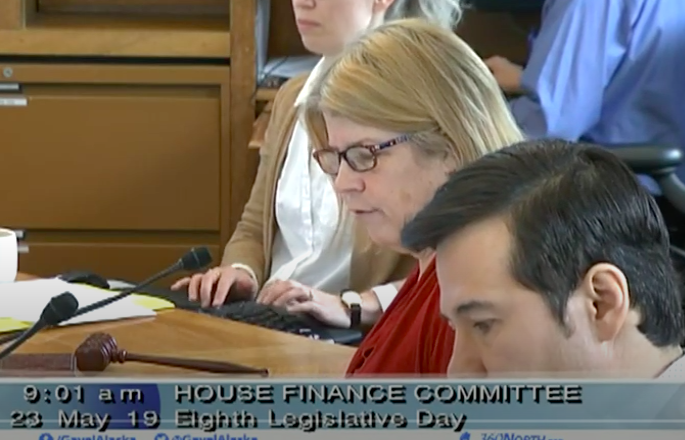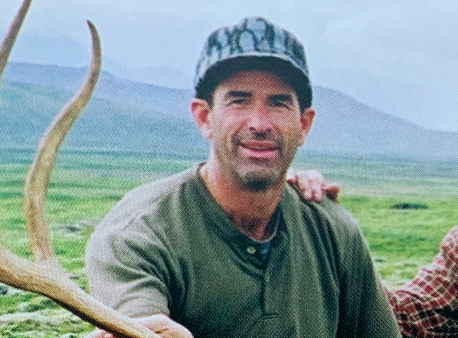PRODUCED BY KOBE RIZK
The MRAK Almanac is your place for political, cultural, and civic events, events where you’ll meet political leaders or, if you are interested in getting to know your state, these are great places to meet conservative- and moderate-leaning Alaskans.
Denali Climbing Report:
The number of climbers to summit Denali this season rose to 232 this week. That’s about 100 more summits than had been completed a week ago. There are 497 climbers currently on the mountain, and odds tell us that just under half will successfully summit North America’s highest peak. NPS wrote: “Pretty perfect skies all up and down the mountain – clear, calm. Warm mid-day temps are more conducive to napping than skiing, but overnight and early morning travel is perfect.”
6/12: Governor’s Water and Wastewater Works Advisory Board will meet via teleconference. This meeting is open to the public and the board will be discussing changes to their disciplinary regulations as well as hear reports from several water services contractors. Read more here.
6/12: Have extra seedlings, or want to trade some with other gardeners? The Anchorage library system will hold a plant exchange at Gerrish Library in Girdwood at 6 pm. More information here.
6/12: The Alaska Police Standards Council will hold its 134th general meeting beginning at 8 am. The meeting is open to the public, but the council will eventually move into non-public executive session. Physical location is in Juneau, but there are also call-in capabilities. More information here.
6/12: Free lecture on Unmanned Aerial Systems at UAF in the Murie Building auditorium. Come learn more about drones and other unmanned aircraft and how they are being used in Alaska. Begins at 7 pm.
6/12: The Federal Subsistence Board will hold a tribal consultation session via teleconference beginning at 10 am. The purpose of the meeting will be to foster discussion between tribal leadership and Federal Subsistence Board leadership about ongoing policies and actions. Agenda here.
6/12: Joint luncheon between the Kenai and Soldotna Chambers of Commerce. Begins at noon at the Soldotna Regional Sports Complex.
6/12: Regular meeting of the Soldotna City Council at 6 pm. The council will introduce the proposed FY20 budget as well as approve funds for the Redoubt Rehabilitation Project. Detailed agenda here.
6/12-6/16: 60th annual Alaska State PITA (Pacific International Trapshooting Association) Trap Shoot in Fairbanks. Read more here.
6/13: Live After Five concert series in Town Square Park starting at 5:30 pm. This concert will feature the 9th Army Kodiak Rock Band.
6/13: Regular meeting of the Kenai Airport Commission. Set to gavel in a 6 pm in the Kenai City Council chambers. Agenda here.
6/13: The Federal Subsistence Board will hold a public hearing in Fairbanks at 5 pm to discuss changes the harvest limit for caribou in Units 20E, 20F, and 25C. Will take place at Pike’s Waterfront Lodge. Read more here.
6/13: The Anchorage Community and Economic Development Committee will meet at 9 am. Passage through this committee is an important “first step” in Anchorage’s marijuana business application process, and they are set to review two new applications at this meeting:
- AR 2019-217 The Herbal Cache #M19277 – Retail
- AR 2019-218 Mary Jane’s Cannabis Emporium #M18117 – Retail
See the agenda here.
6/13: Deadline for public comment on the federal Bureau of Land Management’s new Bering Sea-Western Interior Resource management plan. Read more here.
6/13: The Haines Borough Planning Commission will meet at 6:30 pm in the Haines Borough Assembly chambers. The commission is set to discuss a proposal to join a new ferry authority system with Skagway to make up for the potential loss of service from the Alaska Marine Highway System. Agenda packet here.
6/13-6/16: 25th Annual Last Frontier H.O.G. Rally in Wasilla. Check in at Denali Harley-Davidson. Registration required, visit Facebook link here.

6/14: The Anchorage Salmon Derby begins, running until June 23. This annual classic is one of America’s only urban fishing competitions, and there are thousands of dollars of prizes available to the anglers who reel in the biggest King Salmon from Ship Creek. Make sure you pick up a free derby ticket before you wet a line! Visit this link for more details.
6/14: The Republican Women of Fairbanks will hold their annual Summer Salad Spectacular at the home of Linda Anderson, 3165 Riverview Drive, at 5:30 pm. To attend, please bring a $25 donation and a salad or appetizer to share. For more information, please call 474-9081.
Alaska History Archive:
June 12, 1960: President Dwight D. Eisenhower made his one and only visit to Alaska as President. Eisenhower had signed the Alaska Statehood Act as president and oversaw much of Alaska’s transition from territory to state—but he ironically spent almost only one day in the Last Frontier. The president’s visit in 1960 included an address to troops at Elmendorf Air Force Base and a parade-style motorcade through downtown Anchorage. Click here for a rare video of Eisenhower’s parade through Anchorage, courtesy of the Alaska Film Archives.
June 13, 1994: A federal jury declared Exxon Corporation financially liable for the impacts of the 1989 Exxon Valdez Oil Spill in Prince William Sound. The lawsuit, brought by almost ten thousand Alaskan fishermen, focused on the question of whether the spill was simply an accident or was a result of direct negligence by Exxon executives and tanker captain Joe Hazelwood. The June 13 jury decision allowed fishermen to seek a combined $16 billion in punitive damages, in addition to the $1.5 billion that Exxon had already agreed to pay.











